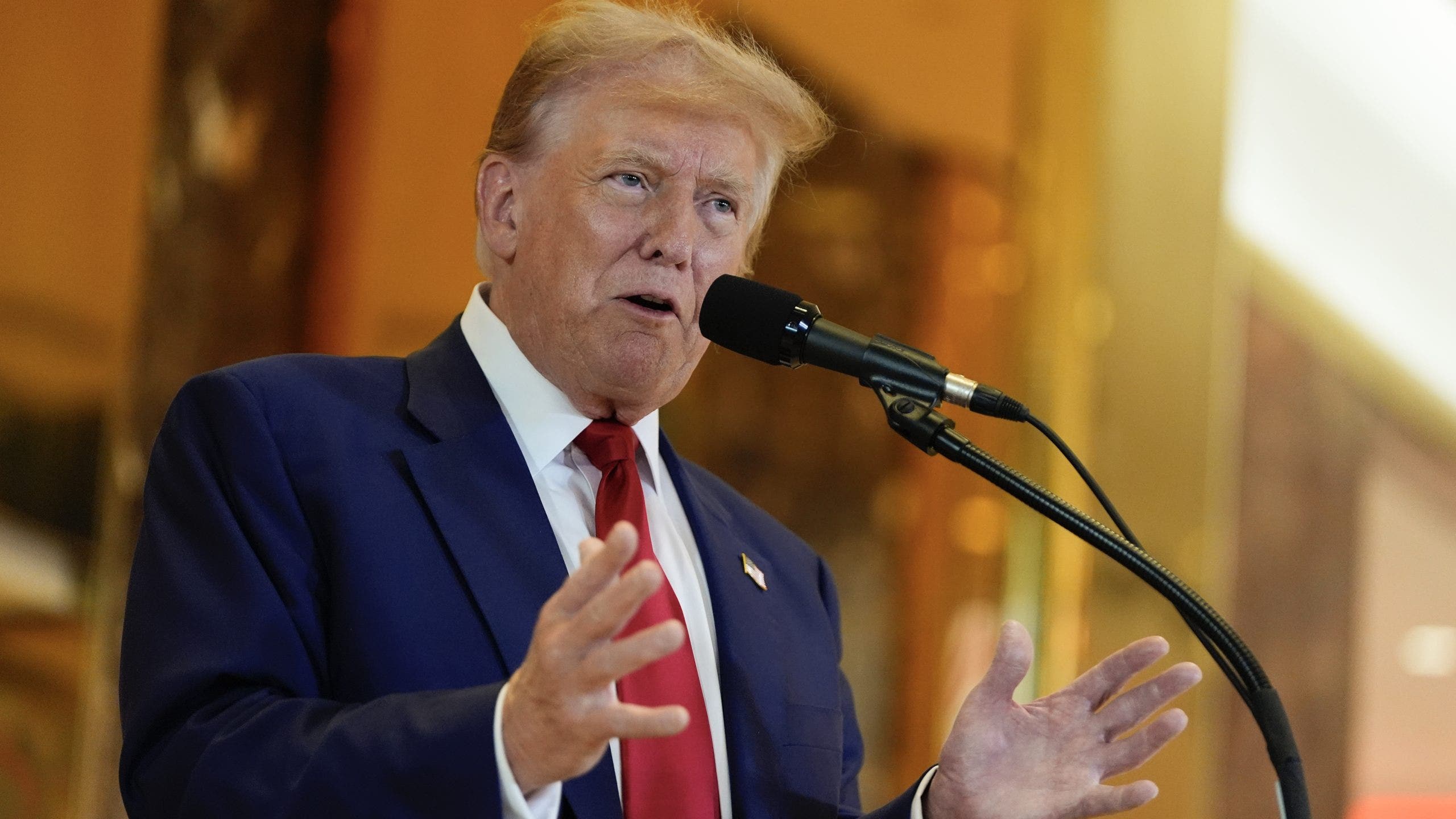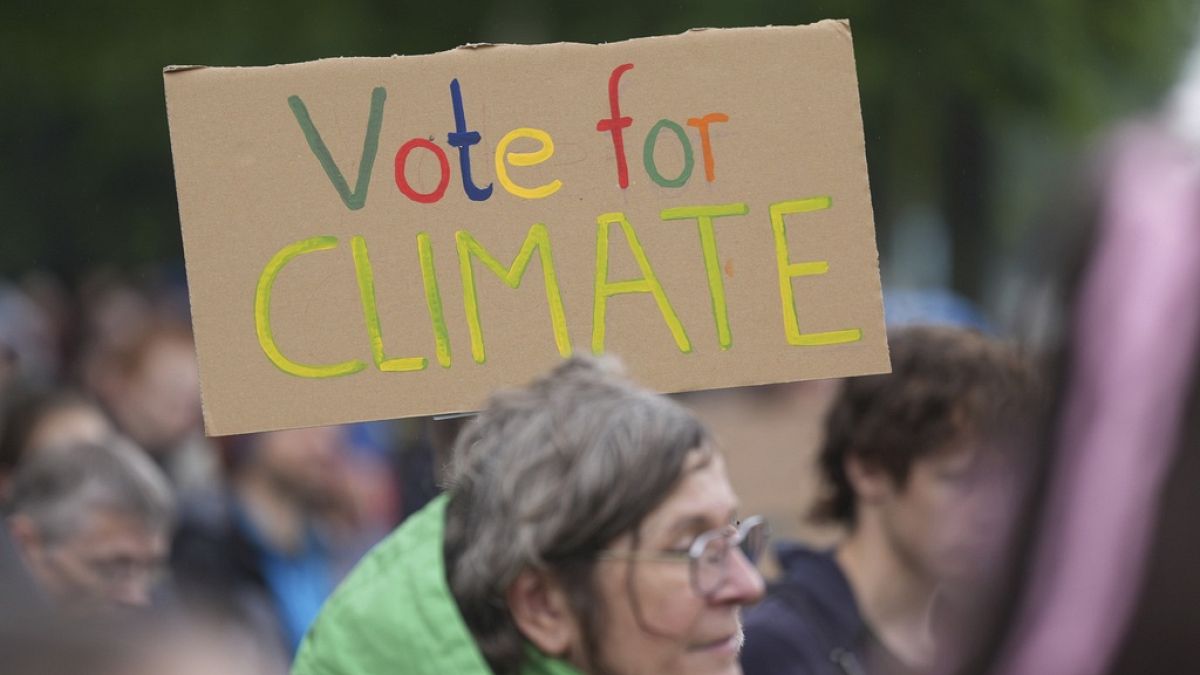World
Tunisian lawyers defiant as government cracks down on all voices

Tunis, Tunisia – Hundreds of black-clad lawyers filled the narrow Boulevard Ben Bnet outside Tunis’s bar association headquarters as they protested the arrests of two of their own.
Thursday was the second day of strikes in a dark week for Tunisian civil society as security forces swept up journalists and activists in what rights groups have characterised as a further crackdown on dissent.
“The regime’s machinery is operating very efficiently, meaning it devours anyone who has a critical perspective on the situation, … lawyers, journalists, bloggers, citizens or associations,” Romdhane Ben Amor of the Ligue Tunisienne pour la defense des droits de l’homme (LTDH, the Tunisian League for the Defence of Human Rights) said.
Ben Amor said President Kais Saied, like populists the world over, sides with those he sees as the people against the elites, encouraging them to blame others for their difficulties.
“So, of course, Kais Saied from now until the elections [scheduled for November] has a long list of individuals, associations, parties and journalists whom he will gradually criminalise to always maintain the sympathy of his electoral base,” Ben Amor said.
The purge
Saied, a former law professor elected in 2019, swept to power on widespread Tunisian anger and frustration over politics regarded as corrupt and self-serving.
After dismissing parliament in July 2021, Saied began rebuilding Tunisia according to his design, ignoring the acute, unresolved financial crisis that led to its 2011 revolution. He blamed “international plots against Tunisia”, rewrote the constitution and purged his critics in politics and the media.
He oversaw the arrest of leaders of the self-styled Muslim Democratic Ennahdha party, including former parliamentary Speaker Rached Ghannouchi as well as the party’s archrival, Abir Moussi.
He weakened the previously vibrant media, introducing Decree 54, criminalising the publication or broadcast of any information the state subsequently deems false. And he has battled the judiciary, restructuring it to his own design.
In the protesting throng on Thursday was Lamine Benghazi of Avocats Sans Frontiers (Lawyers Without Borders).
“The wave of repression we witnessed this week clearly marks a new threshold for Saied and Tunisia,” Benghazi said as the noise of the crowd almost drowned him out.
“Those parts of civil society that avoided the repression that followed the [July 2021 events] now seem to be the primary targets of the authorities. Arrests, raids and investigations on NGOs working on migrant rights have all multiplied over the last few weeks.”
The outlook for Tunisia’s civil society, whose leads were awarded the Nobel Peace Prize in 2015, is grim, he said.
“Our fear is this crackdown will broaden to other groups, especially those working on democracy and rule of law and who are critical of the direction Tunisia is taking. The fact the discussions over the decree governing associations have resumed as civil society is under attack is no coincidence,” he said.
Benghazi referred to a law that parliament – now in a vastly weakened state – has long been discussing. If passed, it would force civil society groups to seek permission from authorities to operate, Amnesty International said in October.
Arrests denounced
Anger was tangible among the protesters outside the imposing colonial courthouse. Slogans from the 2011 revolution rang out – “The people want to topple the regime” – as demonstrators denounced the treatment of their colleagues.
Sonia Dahmani was seized at the bar association on Saturday by masked police who stormed the building in front of television cameras to arrest her, reportedly in connection to a passing quip she had made about Tunisia on a television programme.
Lawyer Mehdi Zagrouba was taken on Monday after an initial national strike by lawyers to protest Dahmani’s arrest. Witnesses said police again violently entered the bar association, breaking windows and doors before detaining Zagrouba.
Zagrouba had been with Dahmani during her court appearance that day and active in the strike. The Ministry of the Interior charged him with verbally and physically attacking the police, which his defence denied.
Video of Zagrouba’s late-night arrest shows him being taken on a stretcher from the bar association, and sources told Al Jazeera that a photographer covering the event had his camera seized.
On Wednesday, Zagrouba’s lawyers told a court he had been tortured before he collapsed and was taken to hospital, forcing the hearing’s postponement.
According to the Tunisian bar association, Zagrouba had “traces of physical violence on different parts of his body, which were examined by the investigating judge, confirming that he was tortured during his detention”.
“The Tunisian authorities have managed to subordinate the judiciary … and to effectively turn courts and the prosecutor’s office into tools of oppression,” Said Benarbia, director of the Middle East-North Africa programme at the International Commission of Jurists, told Al Jazeera.
“By targeting independent lawyers, the authorities are dismantling the remaining pillar on which the fair administration of justice stands, …. part of a wider campaign to intimidate and silence the legal profession, one of the last lines of defence against the government’s crackdown,” he added.
In a statement to local radio, the Interior Ministry denied that Zagrouba had been assaulted at any point and threatened to prosecute anyone sharing false information.
Crackdown after crackdown
On the same evening as Dahmani’s arrest, TV and radio presenter Borhen Bsaies and political commentator Mourad Zeghidi were also arrested under an “anti-fake news” cybercrime law. Bsaies’s lawyer said no proper evidence had been offered to show his client had violated the law.
A judge ruled on Wednesday that both would be held until May 22 on charges of having breached Decree 54.
Bssais and Zeghidi are the latest in a long line of journalists accused of breaching Decree 54 or similar charges.
According to Zied Dabbar, head of the National Union of Tunisian Journalists, at least 60 journalists and commentators have so far been summoned under the law.
Among them is radio host Haythem El Mekki, who is being pursued after saying in April last year that the Sfax morgue was unable to cope with the number of refugee bodies it was receiving.
Those found guilty of having breached Decree 54 face a fine of 50,000 dinars ($16,000) and a prison sentence of five years. The prison sentence could double to 10 years if the offence involves a public official.
“Tunisian authorities must urgently reverse this significant backsliding on human rights,” said Heba Morayef, Amnesty’s regional director for the Middle East and North Africa. “They must cease this judicial harassment and release all those detained solely for the exercise of their freedom of expression and freedom of association.”
Tunisia is also witnessing an influx of sub-Saharan Africans who arrive hoping to catch a boat to Europe – and a purge of groups defending them.
On May 6, Saied repeated claims, without evidence, to his security council of “plots against Tunisia” pertaining to the presence of sub-Saharan Africans.
On the same day, Saadia Mosbah, president of the anti-racism organisation Mnemty (My Dream) and Mnemty programme coordinator Zied Rouin were jailed on “terrorism” and money laundering charges.
The following day, Human Rights Watch said, the president and vice president of the United Nations-partnered Tunisian Refugee Council were arrested after inviting Tunisian hotels to bid to accommodate refugees.
This crackdown on their advocates comes as police persecution of the thousands of Black refugees and migrants in Tunisia increases, including deporting them to Libya, which Saied confirmed.
Mosbah remains in custody. Rouin was released shortly after his arrest.
European backing
As Tunisia retreats from the democratic gains of its revolution, it may have lost some of its sheen, but its status as a transit point for tens of thousands of sub-Saharan African refugees means it will remain a priority for European politicians who fear arrivals from “the south” on their shores.
Far-right ItalianPrime Minister Giorgia Meloni has visited Tunisia many times, most recently in April, to meet with Saied to discuss stemming migration in Tunisia before it proceeds north.
Meloni’s eagerness to support Saied is matched only by that of the European Union, which has made millions of euros in financial aid available to help shore up Tunisia’s economy and border security despite rights abuses by the government being well documented.
Nevertheless, both the EU and the United States Department of State have expressed concern over these latest purges with State Department spokesperson Vedant Patel saying the raids are “inconsistent with what we think are universal rights that are explicitly guaranteed in the Tunisian Constitution and we have been clear about at all levels”.
No mention has been made of any further action.

World
TVLine Items: Charlie Hunnam Joins Amazon’s Criminal, Vince Staples Renewed and More

ad
World
Canadian serial killer Robert Pickton, who brought victims to pig farm, is dead after prison assault
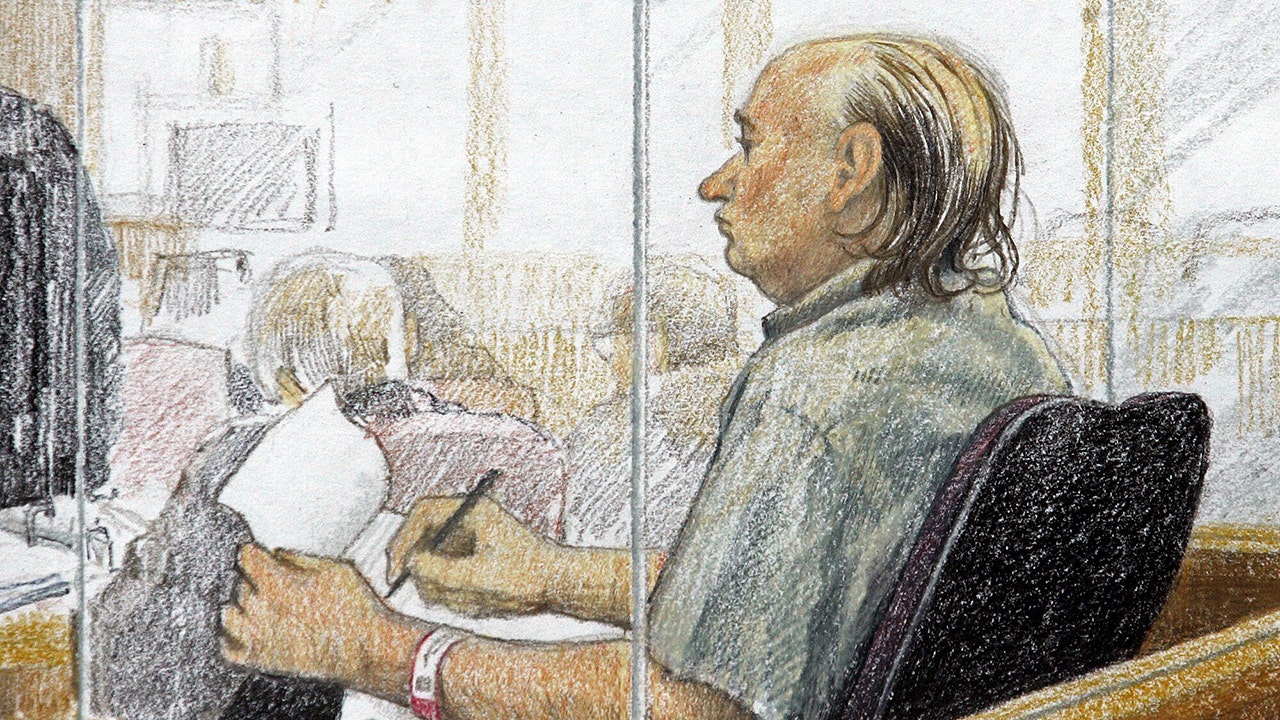
Canadian serial killer Robert Pickton, who took female victims to his pig farm during a crime spree near Vancouver in the late 1990s and early 2000s, has died after being assaulted in prison, authorities said Friday. He was 74.
The Correctional Service of Canada said in statement that Pickton, an inmate of Port-Cartier Institution in the province of Quebec, died in hospital following injuries in the May 19 assault involving another inmate. He was one of Canada’s most notorious serial killers and his case made international headlines.
A CANADIAN SERIAL KILLER WHO BROUGHT VICTIMS TO A PIG FARM IS HOSPITALIZED AFTER A PRISON ASSAULT
A 51-year-old inmate was in custody for the assault on Pickton, police spokesman Hugues Beaulieu said earlier this month.
This artist’s sketch shows accused serial killer Robert Pickton taking notes during the second day of his trial in B.C. Supreme Court in New Westminster, British Columbia, Jan. 31, 2006. (Jane Wolsack/The Canadian Press via AP)
Robert “Willie” Pickton was convicted of six counts of second-degree murder and sentenced to life in prison in 2007, with the maximum parole ineligibility period of 25 years, after being charged with the murders of 26 women.
Police began searching the Pickton farm in the Vancouver suburb of Port Coquitlam more than 22 years ago in what would be a years-long investigation into the disappearances of dozens of women from Vancouver’s seediest streets, sex workers and drug addicts abandoned on the margins of society.
The remains or DNA of 33 women were found on the farm. Pickton once bragged to an undercover police officer that he killed a total of 49 women.
During his trial, prosecution witness Andrew Bellwood said Pickton told him how he strangled his victims and fed their remains to his pigs. Health officials once issued a tainted meat advisory to neighbors who might have bought pork from Pickton’s farm, concerned the meat might have contained human remains.
Cynthia Cardinal, whose sister Georgina Papin was murdered by Pickton, said Pickton’s death means she can finally move on from her sister’s murder.
“This is gonna bring healing for, I won’t say all families, I’ll just say most of the families,” she said. “I’m like — wow, finally. I can actually move on and heal and I can put this behind me.”
Vancouver police were criticized for not taking the cases seriously because many of the missing were sex workers or drug users.
Canada’s correctional service said it was conducting an investigation into the attack on Pickton.
“The investigation will examine all of the facts and circumstances surrounding the assault, including whether policies and protocols were followed,” the service said in the statement. “We are mindful that this offender’s case has had a devastating impact on communities in British Columbia and across the country, including Indigenous peoples, victims and their families. Our thoughts are with them.”
Pickton’s confirmed victims were six: Sereena Abotsway, Mona Wilson, Andrea Joesbury, Brenda Ann Wolfe, Papin and Marnie Frey.
“Earlier today, I was made aware of the death of an inmate at Port-Cartier Institution,” Public Safety Minister Dominic LeBlanc said in statement. “At this time, my thoughts are with the families of the victims of this individual’s heinous crimes.”
At the time of Pickton’s sentencing, British Columbia Supreme Court Justice James Williams said it was a “rare case that properly warrants the maximum period of parole ineligibility available to the court.”
World
El Salvador’s President Nayib Bukele cements power as he begins second term

After February landslide win, 42-year-old set to govern for another five years with near-total control of parliament and other state institutions.
El Salvador’s President Nayib Bukele is set to be sworn in for a second term, riding on a wave of popularity that has helped him consolidate his power and influence in the country.
The 42-year-old, who unapologetically describes himself as a “cool dictator”, was re-elected in February with 85 percent of the vote. He is set to govern for another five years with near-total control of parliament and other state institutions.
The former publicist and mayor will take the oath of office at the National Palace in the capital, San Salvador, on Saturday.
The ceremony is due to be attended by dignitaries including Spanish King Felipe VI and Argentinian President Javier Milei, with whom Bukele shares an admiration for former United States President Donald Trump, whose son and namesake is also attending the event.
On Friday, inauguration preparations were disrupted by reports that police thwarted a plot to detonate explosives at locations across the country.
Bukele enjoys sky-high approval ratings due to his brutal crackdown on criminal gangs, credited with returning a sense of normalcy to a violence-fatigued society.
The campaign has drawn criticism from rights groups but has made Bukele the most popular leader in Latin America, according to a regional poll.
Bukele’s New Ideas party scored a near-clean sweep in legislative elections, where it took 54 of 60 seats.
Yet experts warn his extended honeymoon with voters may be nearing its end as economic worries overtake safety concerns in the public discourse, amid high government debt and fast-rising prices for consumer goods in a country where more than a quarter of the six million population lives in poverty.
Food inflation, meanwhile, has outpaced salary increases while public debt has skyrocketed on his watch to more than $30bn, or 84 percent of the country’s gross domestic product (GDP).
Gangs as a ‘cancer’
Bukele will have even more power in his second term after the legislative assembly approved a reform that will make it easier for him to push through constitutional changes.
The president has laughed off criticism of authoritarian tendencies, but he was only able to seek re-election after a loyalist Supreme Court ruling allowed him to bypass a constitutional ban on successive terms.
“What he has demonstrated is that the law is irrelevant and that he can do whatever he wants, how he wants,” public policy expert Carlos Carcach told AFP news agency, describing Bukele as an “all-powerful” president.
With his preferred getup of jeans and a baseball cap, millennial Bukele came to power in 2019 promising to crush the country’s gangs, to which he attributes some 120,000 murders over three decades – more than the 75,000 lives lost in El Salvador’s civil war from 1980 to 1992.
During Bukele’s first term, authorities rounded up more than 80,000 presumed gangsters under a state of emergency in place since March 2022 that allows for arrest without a warrant.
His government also built the largest prison in Latin America to hold them.
The result, Bukele has boasted, has been turning “the murder capital of the world, the world’s most dangerous country, into the safest country in the Western Hemisphere”.
But it has come at a cost.
Human Rights Watch and Amnesty International have reported the killing and torture of detainees, and thousands of innocent people – including minors – among those arrested.
-

 World1 week ago
World1 week ago€440k frozen in Italy over suspect scam by fake farmers
-

 News1 week ago
News1 week agoRead the I.C.J. Ruling on Israel’s Rafah Offensive
-

 News1 week ago
News1 week agoBuy-now, pay-later returns and disputes are about to get federal oversight
-
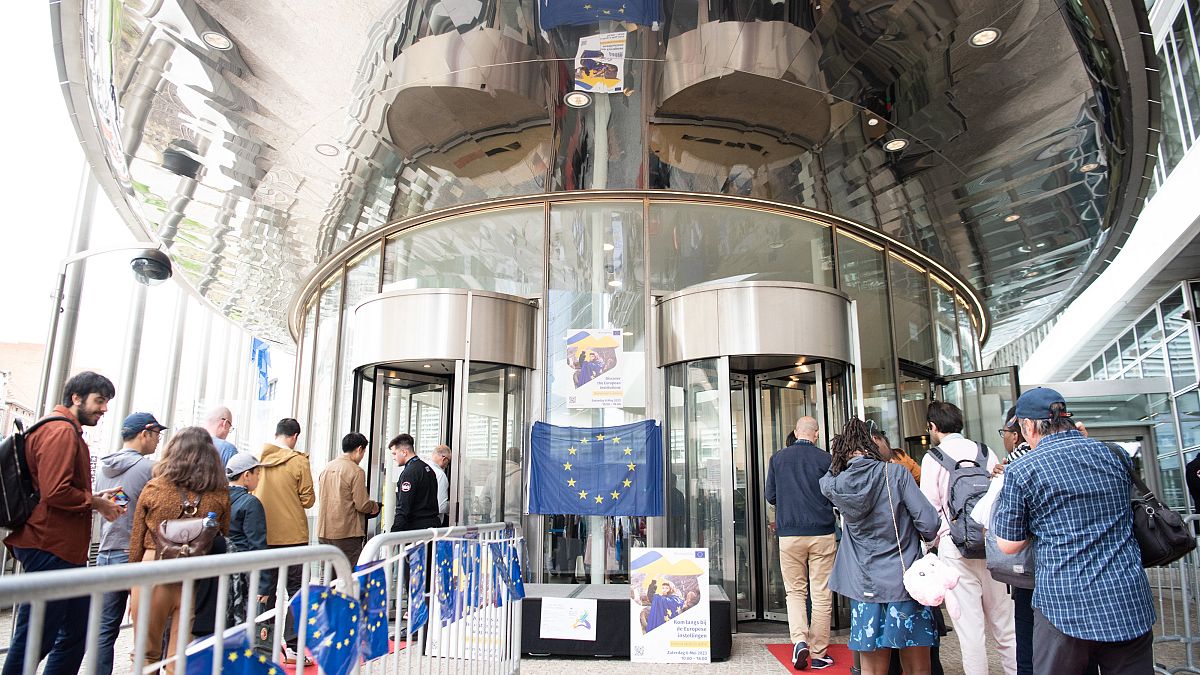
 World1 week ago
World1 week agoOmbudsman probes Commission's senior staff 'revolving door'
-

 News1 week ago
News1 week agoVideo: Protesters Take Over U.C.L.A. Building
-
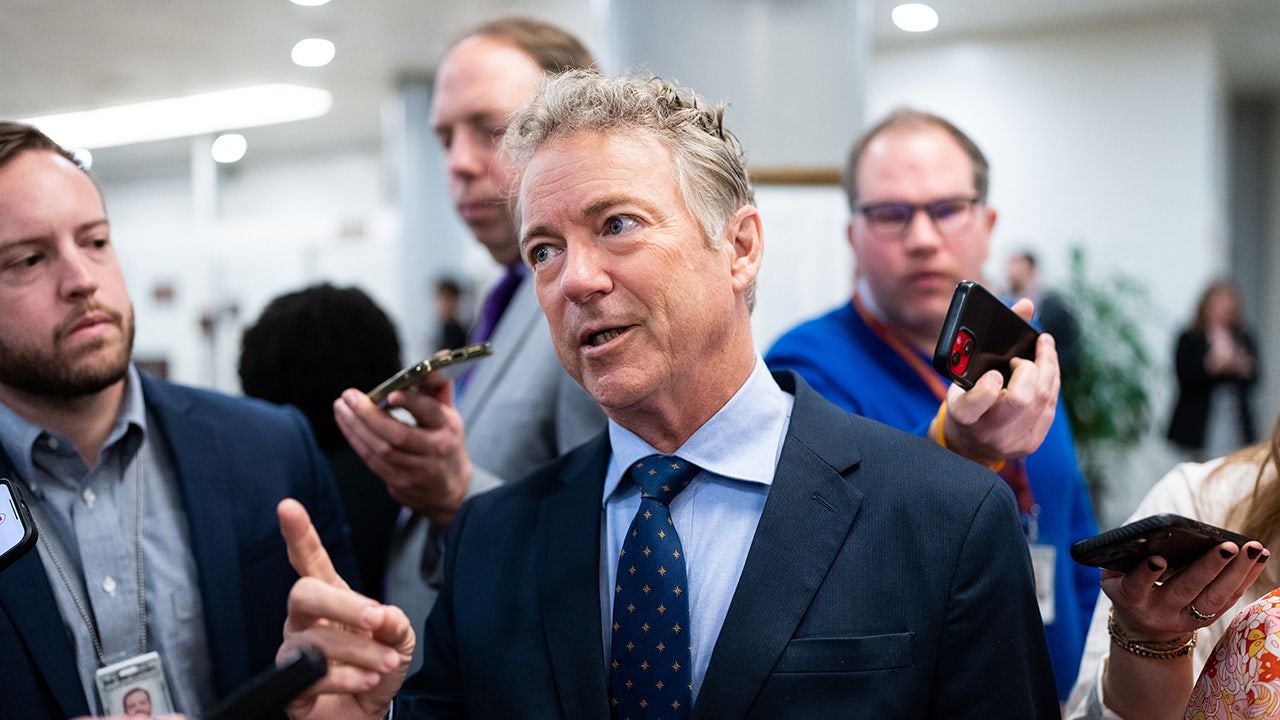
 Politics1 week ago
Politics1 week agoFauci adviser's alleged destruction of COVID origin docs must be probed by AG: Rand Paul
-
/cdn.vox-cdn.com/uploads/chorus_asset/file/25459708/Screenshot_2024_05_22_at_9.08.56_AM.png)
/cdn.vox-cdn.com/uploads/chorus_asset/file/25459708/Screenshot_2024_05_22_at_9.08.56_AM.png) Technology1 week ago
Technology1 week agoSuper Mario Maker 64 exists, thanks to a new ROM hack
-

 World1 week ago
World1 week agoHoping to pave pathway to peace, Norway to recognise Palestinian statehood












